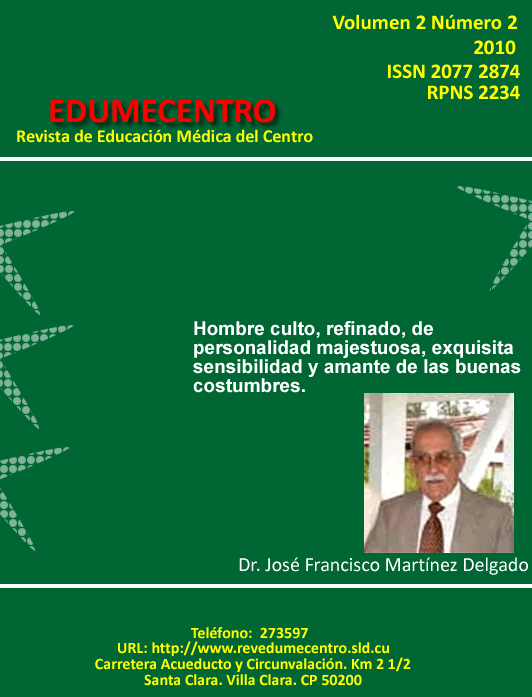Digital Information Literacy as a neccesary complaint of the scientific societies
Keywords:
Strategy, information literacy, scientific societies.Abstract
It was carried out a research about the level of preparation of the presidents of scientific societies in Villa Clara health sciences, considered them as potential leaders who guide the community members toward a better teaching, research and welfare performance. There were used quantitative and qualitative methods and it was investigated the opinion of the people involved in this process (directors, members and the own presidents). Beginning with the identification of the main difficulties found in their preparation, it was elaborated a strategy directed to the improvement in the use of the scientific information and TICs, as real multipliers of the information literacy in their scenes. This strategy was structured with actions that facilitate the preparation of the presidents of the scientific communities in this field.Downloads
Download data is not yet available.
Published
2013-02-08
How to Cite
1.
Fernández Díaz M del P, Díaz Velis Martínez E, Delgado Pérez M. Digital Information Literacy as a neccesary complaint of the scientific societies. EDUMEC [Internet]. 2013 Feb. 8 [cited 2026 Feb. 13];2(2):42-54. Available from: https://revedumecentro.sld.cu/index.php/edumc/article/view/73
Issue
Section
ARTÍCULO ORIGINAL
License
Los autores que publican en esta revista están de acuerdo con los siguientes términos:- Los autores/as conservarán sus derechos de autor y ceden a la revista el derecho de primera publicación de su obra, el cuál estará simultáneamente sujeto a una Licencia Creative Commons Reconocimiento-NoComercial-CompartirIgual 4.0 Internacional (CC BY-NC-SA 4.0) que permite a terceros compartir la obra siempre que se indique su autor y su primera publicación esta revista.
- Los autores pueden establecer por separado acuerdos adicionales para la distribución no exclusiva de la versión de la obra publicada en la revista (por ejemplo, situarlo en un repositorio institucional o publicarlo en un libro), con un reconocimiento de su publicación inicial en esta revista.
- Se permite y se anima a los autores a difundir sus trabajos electrónicamente (por ejemplo, en repositorios institucionales o en su propio sitio web) antes y durante el proceso de envío, ya que puede dar lugar a intercambios productivos, así como a una citación más temprana y mayor de los trabajos publicados (Véase The Effect of Open Access) (en inglés).










